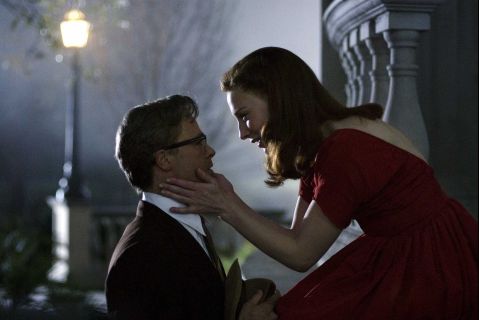The Curious Case of Benjamin Button
Brad Pitt, Tilda Swinton, and Cate Blanchett star in a film written by Eric Roth and directed by David Fincher.

Two months ago the buzz about this film was almost deafening. Withheld melodramatically from the usual critics’ pre-screening audiences – though eventually “debuting” at a disastrous technical difficulty-plagued Los Angeles Director’s Guild gathering – it was none the less widely believed to be the movie that would leave Oscartown this time with the biggest swag bag of all.
You may not agree. Despite the film’s obvious debt to big Academy-approved sagas like Forrest Gump, and despite its pretentious (but actually thin) literary pedigree (a magical realism rewrite of an F. Scott Fitzgerald short story), not a whole lot actually happens in this story of a child who is born geriatric but eventually grows into a 1950s Brando-ish version of Brad Pitt. And even though it was directed by culty auteur David Fincher, it’s almost unusually subdued in the artsy camera-angles and big screen panorama departments.
It is a good movie, though. And it would be wrong to suggest it was ever boring. But The Curious Case of Benjamin Button owes its success less to its Gump connection (screenwriter Eric Roth penned both, and they share a march through the 20 th Century via the eyes of a manchild) than it does to odd romance films like Big or The Way We Were. Films that make a big deal out of cutely irresponsible boyish men who undeniably appeal to practical women, only to exit before the illusion of romance can be crushed by the bad breath of old age.
Yet it does make you think a little about death. Button wants to remind us that everything always changes and “you never know how life will come after you.” But its real chemically altering reactions belong to Pitt kissing first Tilda Swinton and then Cate Blanchett. It wants you to fall in love with mutability. It has a hummingbird instead of a box of chocolates. The rest of the movie is just a nice buzz.



